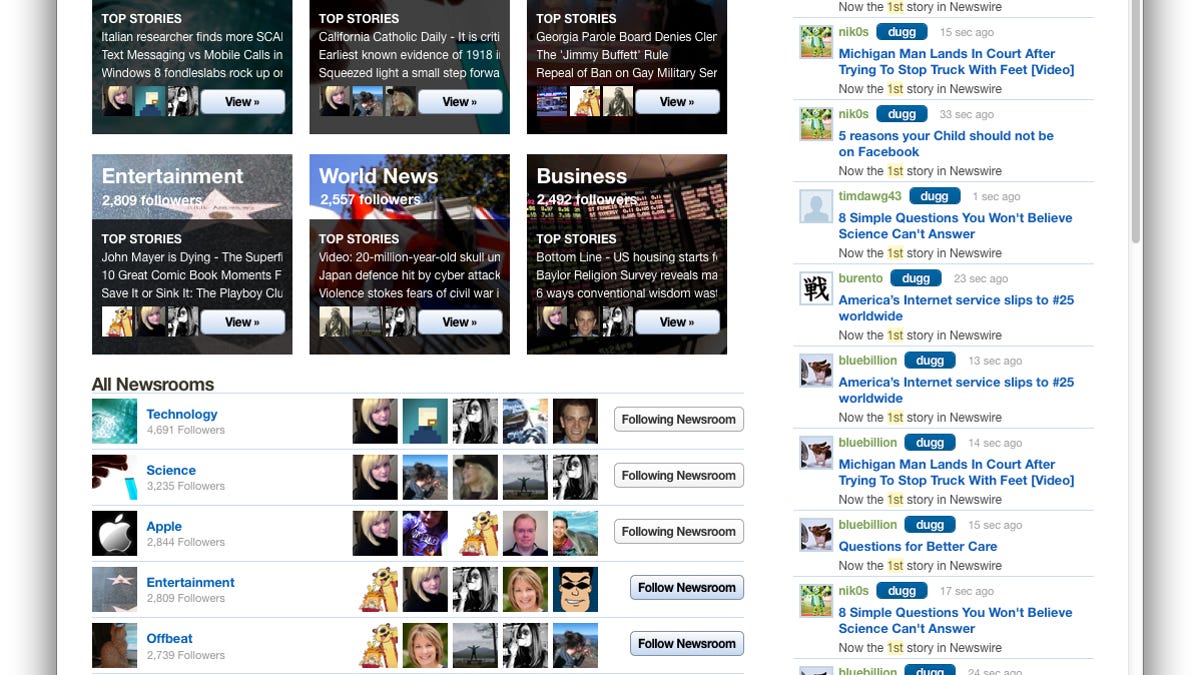Digg launches new algorithm with 'Newsrooms'
As the site hemorrhages users, a new news algorithm attempts to separate "meaningful" stories from those that are merely popular.

The news from Digg today is that it's plotting a comeback via the newsroom. Many "Newsrooms," actually. That's the name Digg has given to its new aggregation scheme, which began rolling out in private beta at noon Pacific Tuesday.
"When you visit a Newsroom you'll find the best news for a given topic as measured by popular opinion and ranked by top contributors on Digg," explains a statement from the company. "Topics as broad as technology or as specific as Lady Gaga."
Newsrooms will be curated based on a "three-step algorithm" leveraging data from the Digg community to make meaningful stories rise to the top. Here's how the company explains the three legs of the tripod newsrooms are built upon:
Here's how it works:
• Sourcing: We locate great content for each topic and display in a real-time feed called "Newswire."
• Signals: Stories are ranked automatically by an algorithm that looks at recency and popularity including Likes on Facebook, Tweets and LinkedIn sharing, to name a few.
• Curation: The news is then filtered by the Diggs and Comments of passionate users who have gained reputation as top influencers in each Newsroom topic.
If this all sounds an awful lot like what Digg already does, you're not too far off. The key, according to Digg, is that this new algorithm will be better at surfacing "meaningful" stories rather than just the most popular.
...Is the most popular story also the most meaningful? Not necessarily. Just ask music fans about Rebecca Black, or political junkies about Weinergate. Newsrooms are designed to find the most meaningful news for a given topic - to separate valuable from popular.
But there will also be some visible differences in how Newsrooms will look, feel, and operate compared to the standard Digg feeds:
A key factor in finding the most meaningful news is you--the Digg user. Now all your reading, Digging, and Burying activity is shown transparently in a real-time activity feed within each Newsroom. And we've built a way to measure and reward how influential that activity is for other users. We've created a series of badges to reward those who are the most active and influential in the Newsroom. So whether you are an Ace reporter (First story promoted to that Newsroom Front Page) or "Trendsetter" (25 stories or more), you are making a difference in what people read.
Digg has been hemorrhaging users at an alarming rate for awhile, and especially since an unpopular redesign last year. It remains to be seen if recasting itself as a new and improved Google News can turn things around. One possible indicator is how well the news of Digg's new feature is doing in the Digg Technology newsroom--as of about 10 minutes after the beta went live it was only the No. 2 story, behind the news of Instagram 2.0.

